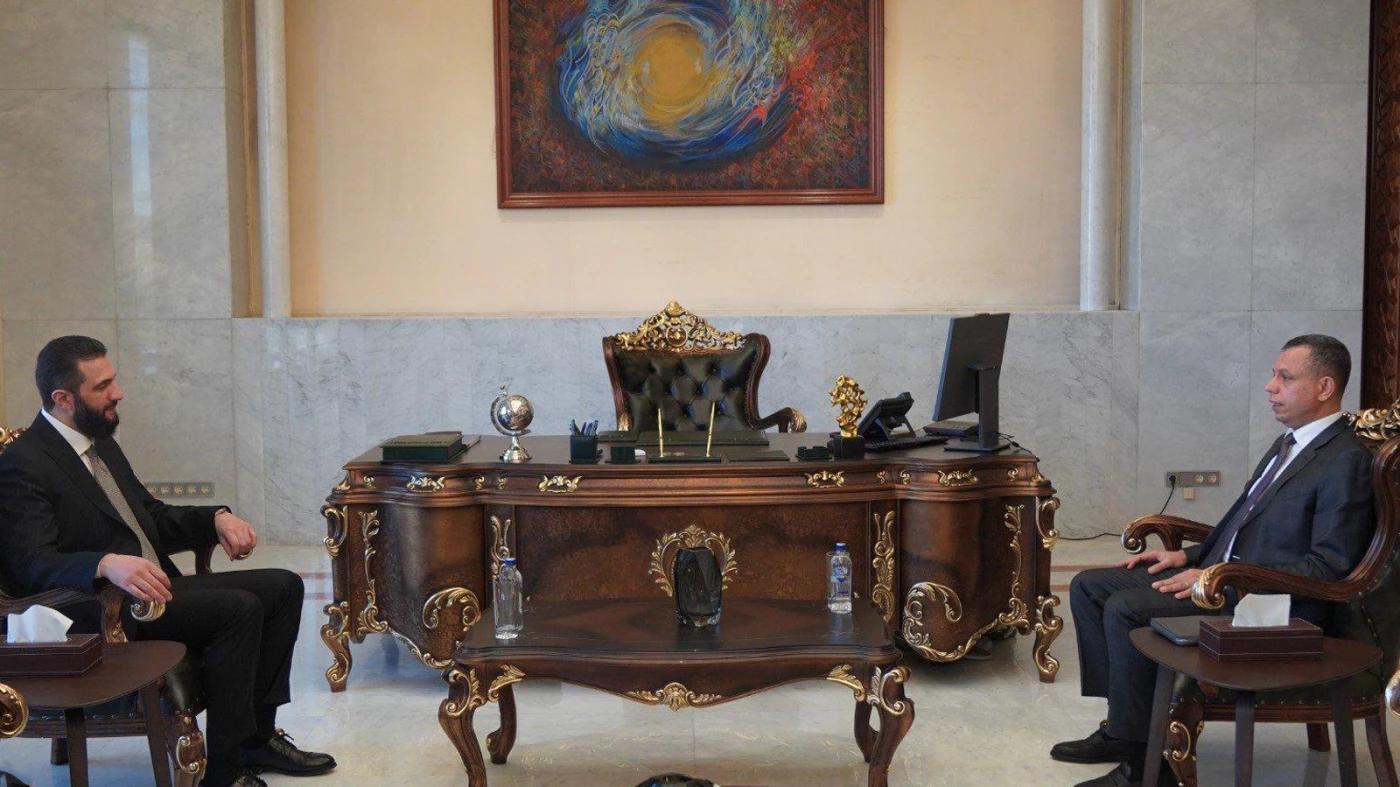ERBIL, Kurdistan Region of Iraq - Syrian President Ahmed al-Sharaa received an Iraqi delegation, headed by intelligence chief Hamid al-Shatri, on Friday, discussing several topics, including the potential rehabilitation of an Iraqi oil pipeline through Syrian territories.
The two sides discussed cooperation in combating terrorism, border security, and expanding trade opportunities, a source from the delegation told Iraqi state media.
They also discussed “the possibility of rehabilitating the Iraqi pipeline to transport oil through Syrian territory to Mediterranean ports,” said the source, adding that Sharaa “expressed his readiness to cooperate with Iraq in various fields.”
The Kirkuk-Baniyas pipeline, completed in 1934, originally transported crude from Iraq’s northern oil fields in Kirkuk through Syria to Lebanon’s Tripoli port and Syria’s Baniyas port. Spanning 800 to 900 kilometers, it had a peak capacity of 1.4 million barrels per day, making it Iraq’s primary export route for decades.
The pipeline was nationalized by Syria in 1972 following Iraq’s oil nationalization that same year. The Syrian regime stopped the flow of Iraqi oil through the Tapline in 1982 due to disputes between the two countries during the Iran-Iraq War, with the eight-year-long conflict prompting a shift to Gulf-based exports and the establishment of the Iraq-Turkey pipeline in the 1980s.
In the 1990s, Iraq partially reopened the pipeline to Syria under a limited “oil-for-goods” agreement during the United Nations sanctions era.
The pipeline could provide a direct maritime outlet to European and Mediterranean markets, serving as a vital alternative in times of tension with Turkey.
Encouraging investment between the two countries, the signing of commercial contracts in the oil and grain sectors, and forming joint committees to follow up on the implementation of deals were also highlighted in the meeting, according to Syrian state media.
“They also agreed to establish a working mechanism for operating the al-Tanf-al-Walid border crossing between the two countries.”
Iraq’s borders with Syria extend 618 kilometers.
Shatri also reiterated Iraqi Prime Minister Mohammed Shia’ al-Sudani’s invitation for Sharaa to partake in the upcoming Arab summit in Baghdad on May 17.
The Iraqi government, closely aligned with Iran, was a keen backer of the former Syrian regime led by Bashar al-Assad and has been hesitant in establishing ties with the new authorities in Syria.
Shatri led the first official visit of an Iraqi delegation to post-Assad Syria in late December, meeting with the new administration’s top officials, including Sharaa.
Syrian Foreign Minister Asaad al-Shaibani visited Iraq in late March, holding a number of meetings with the country’s top officials and stressing the new Damascus administration’s commitment to enhancing ties with Baghdad.



 Facebook
Facebook
 LinkedIn
LinkedIn
 Telegram
Telegram
 X
X


